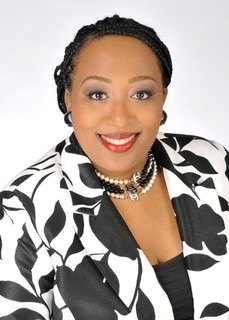By Dr. Jamie F. Eaddy
Life, as we know it, is inconceivably different. It has changed in a way that many find difficult to reconcile. Accompanying these changes are a myriad of emotions, including—and perhaps notably—fear, anxiety, and grief. Furthermore, in times like ours of burgeoning personal and communal chaos, those responsible for providing pastoral care are called upon to provide comfort and support to people struggling with crises, grief, and loss in unfamiliar territory. This is expressly true when that loss is the death of a loved one.
For most of us, the death of a loved one is the most severe stress that we will encounter; yet, the majority will navigate this experience with no lasting impairment of their physical and mental health. That was true until this global pandemic changed our lives. Due to coronavirus, death and dying rituals have been postponed, protocols suspended, and people forced to deal with their loved one’s death alone or from a distance.
Death and distance are two things that one might consider antithetical to the culturally-oriented reactions and death practices to which many are accustomed. Those practices include but are not limited to funeral planning, the gathering of the community for collective mourning, the funeral, and the repast. The repast is where a meal is shared and memories are made that provide just the right anecdote to our sadness.
Traditionally, funerals were rooted in religious practice and provide a profoundly-sacred social way of mourning losses. The community shows up for the funeral to ensure that the bereaved do not have to go through this loss alone.
Though not impossible, crises, grief, and loss are not easily navigated alone. However, in this time of social distancing, many hospitals and nursing homes have placed restrictions on visitation, only allowing people into the hospital when a patient is near the end of life. Moreover, even for end-of-life situations, the number of visitors is limited to usually two or three people, thus creating an environment where we have to deal with the death of our loved ones alone or from a distance. How do we choose who gets to be present when our loved one transitions? Further, how does the rest of the family deal with that death from a distance?
While the precautions taken by hospitals and nursing homes are for our safety, it does add to the grief that we are all experiencing. We are grieving the loss of normalcy, jobs, peace, and relative stability. Now, we must deal with the loss of community when we need them most.
All of us are vulnerable to bereavement but some are more vulnerable than others. No matter how “prepared” we are, all losses are traumatic. Yet, some are more traumatic than others. This is why spiritual and emotional support is necessary for helping individuals and communities work through grief.
Doing this, but from a distance, is the task that pastoral care providers now undertake. It is challenging for those grieving as well as for those of us who provide support to the bereaved. As a pastoral care practitioner, I am committed to my roles as a non-anxious, empathetic presence who journeys alongside those who are grieving. However, for the past two months, it has been an incredibly heavy burden.
This burden of dealing with death from a distance cannot be quickly resolved; and, it can be seen in the eyes, on the faces, and felt in the bodies of those grieving. Nevertheless, there are things that we can do to ensure that the communities we serve are aware that they do not have to navigate loss alone.
Jamie F. Eaddy, D.Min is the Minister for Congregational Wellness at the Saint Paul’s Baptist Church in Philadelphia, Pennsylvania.





